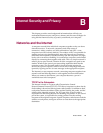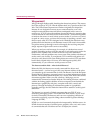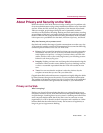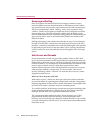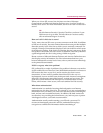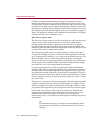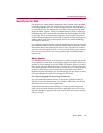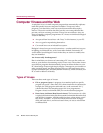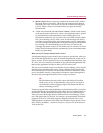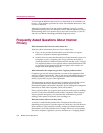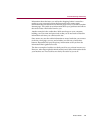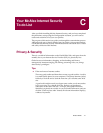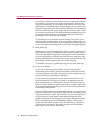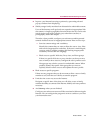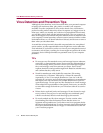
Product Guide 107
Internet Security and Privacy
n Macro viruses: Macro viruses are contained in document files, such as
Microsoft Word or Excel files. These files can contain macros that can
automate your work—but macros can also be written to do damage to
your PC. Macro viruses are activated when you open an infected
document file.
n A final word should be said about hoax “viruses,” which are not viruses
in the strictest sense of the term. A hoax virus replicates a hoax, spread
by misinformed (if well intentioned) e-mail claiming that if you
download a certain file, or if you receive an e-mail with a certain subject
line, you will infect your PC with a virus. E-mail messages are always
safe; they are simple text files, and cannot contain viruses. Attachments
to e-mail messages (an attachment is a file that a message sender attaches
to a message—it is downloaded to your PC when you retrieve the
message) can contain viruses. (If E-mail file access is turned on in Virus
Sentry, McAfee Internet Security automatically scans e-mail attachments
before you open them.)
How can my PC become infected with a virus?
An important thing to keep in mind is that viruses are spread only when you
run an infected application (or open an infected document file, in the case of
macro viruses). A virus cannot travel over your telephone line and infect your
PC on its own. You must first download or copy an infected application and
then run the application in order to infect your PC with a virus.
The only way to entirely avoid virus infection is to do nothing—don’t use the
Internet; never download a file; never accept a diskette from someone else;
never share Word or Excel files. Of course, this draconian “Robinson Crusoe”
cure is unrealistic in today’s computing environment, where sharing data is
the norm and accessing the Internet is an everyday occurrence.
TIP
McAfee Internet Security offers comes with McAfee VirusScan
which is easy to use. It automatically scans your PC for signs of
virus infection, and investigates suspect files before they have a
chance of infecting your PC.
Viruses are spread when infected diskettes are shared between PCs, and when
you download and run infected files from online services, bulletin boards, or
the Internet. Another potential (but remote) route for virus transmission is
when you access Web pages that use Microsoft ActiveX technology or Sun’s
Java. Web pages that use ActiveX, for example, can automatically download
programs to your PC, and these programs might be infected with a virus.
Although there is no known case where ActiveX and Java have spread viruses,
there is still a possibility— remote as it may be—for your PC to encounter a
virus in this way.



